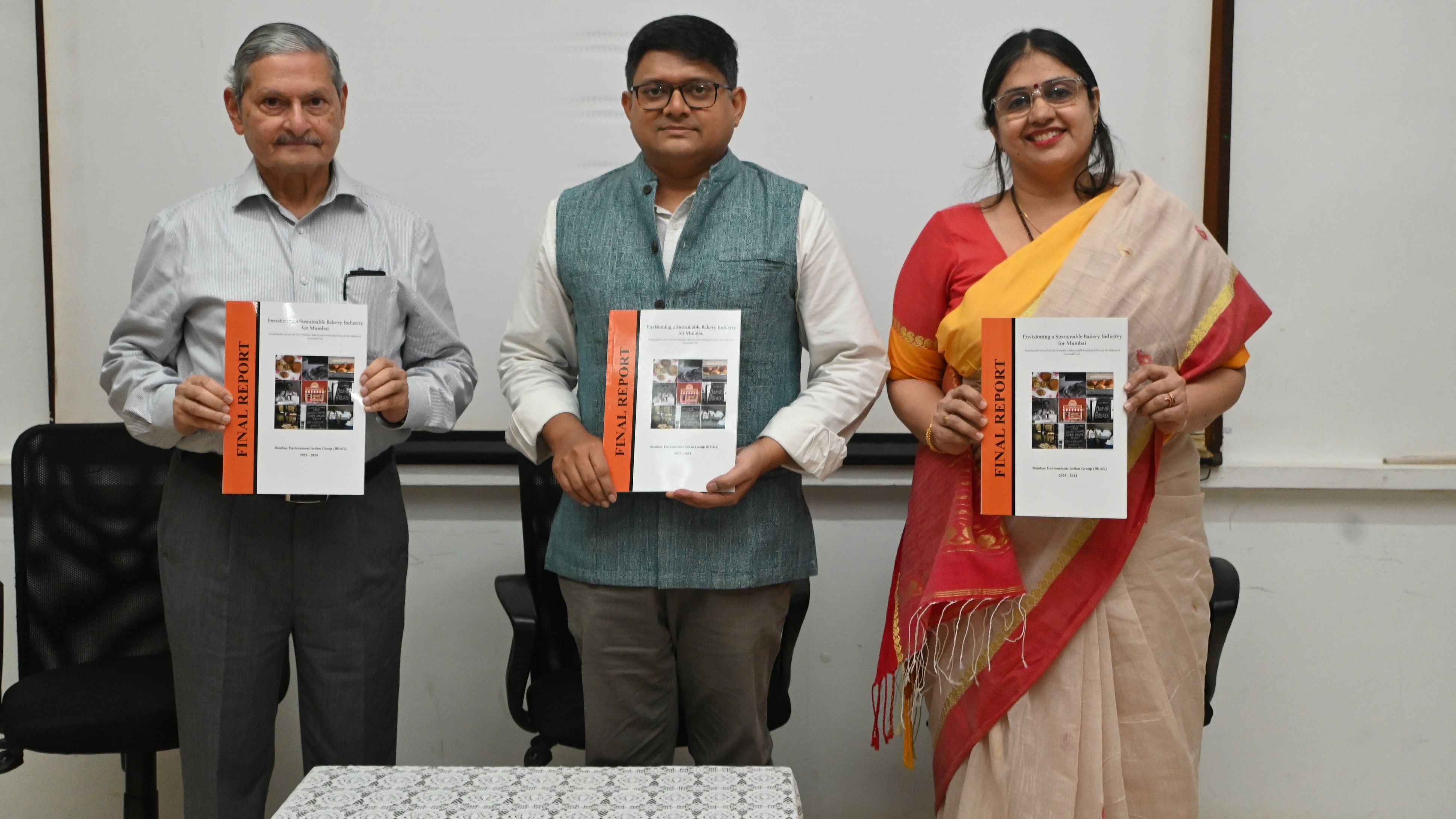
The study’s recommendations align with the National Clean Air Programme (NCAP) objectives, emphasising the need for regulatory support and collaboration among bakery owners, policymakers, and environmental organisations.
Credit: Special Arrangement
Mumbai: Cleaner fuels for Mumbai’s bakeries are a must and would go a long way in combating air pollution, according to a study by the Bombay Environmental Action Group (BEAG).
Surveying over 200 bakeries, the study titled Envisioning a Sustainable Bakery Industry for Mumbai found that most bakeries still use wood-fired ovens, which emit harmful pollutants including particulate matter (PM), methane (CH4), carbon dioxide (CO2), carbon monoxide (CO), and volatile organic compounds (VOCs).
These emissions pose severe health risks to Mumbai's residents. Transitioning from wood-fired ovens to cleaner fuels is crucial for improving air quality, safeguarding public health, and ensuring a sustainable future for the city.
The study’s recommendations align with the National Clean Air Programme (NCAP) objectives, emphasising the need for regulatory support and collaboration among bakery owners, policymakers, and environmental organisations.
The Mumbai Climate Action Plan by Brihanmumbai Municipal Corporation’s (BMC) states that there is a mandate for all bakeries to obtain licences to move to cleaner fuels for which the timeframe given is till the year 2027.
"Solid fuel burning is one of the toughest sources of pollution to abate. The bakery sector uses solid fuels from diverse origins. By allocating funds from the National Clean Air Programme and forming partnerships with the private sector, we can provide the technical and financial assistance needed to transition to cleaner fuels. Strengthened regulatory measures will ensure compliance and long-term sustainability,” said Dr Tuhin Banerji, Project Head for Envisioning a Sustainable Bakery Industry for Mumbai study.
“Tackling emissions from bakeries is an achievable target. Being nestled in residential areas, they cause grave health concerns. With positive stakeholder engagement and incentives, there is a good possibility that all bakeries will transition to cleaner fuels within the next two years,” said Hema Ramani, Former Campaigns Director, BEAG.
Overall, 47.10 per cent of the 200 surveyed registered bakeries predominantly use wood as fuel, primarily sourced as scrap wood from old furniture and dilapidated buildings due to its lower cost compared to logwood. This practice significantly contributes to the city’s pollution levels.
The larger wood-consuming bakeries reported daily usage between 250 and 300 kg of wood, while the average wood consumption for wood-fired bakeries stood at approximately 130 kg daily. To process 20 kg of flour into ‘pav’; about 4-5 kg of wood are required.
The cost of scrap wood is around Rs 4-5 per kg, whereas logwood costs Rs 10-12 per kg. The ash generated from wood-fired bakeries is often disposed of in dumping grounds, contributing to air pollution.
The environmental impact of these practices is staggering. Emissions from wood- fired ovens are a major source of PM10 and PM2.5, tiny particles that can penetrate deep into the lungs, causing respiratory and cardiovascular diseases.
Burning of these scrap woods also produces VOCs that cause cancers, asthma, and many other diseases. These VOCs produced also lead to formation of haze and ground level ozone.
Electricity was the second most common fuel, used by 28.10 per cent. Other fuel options, including LPG, PNG, diesel, and hybrid fuels, were less frequently used, with LPG + Electricity being used by 20.90 per cent bakeries.